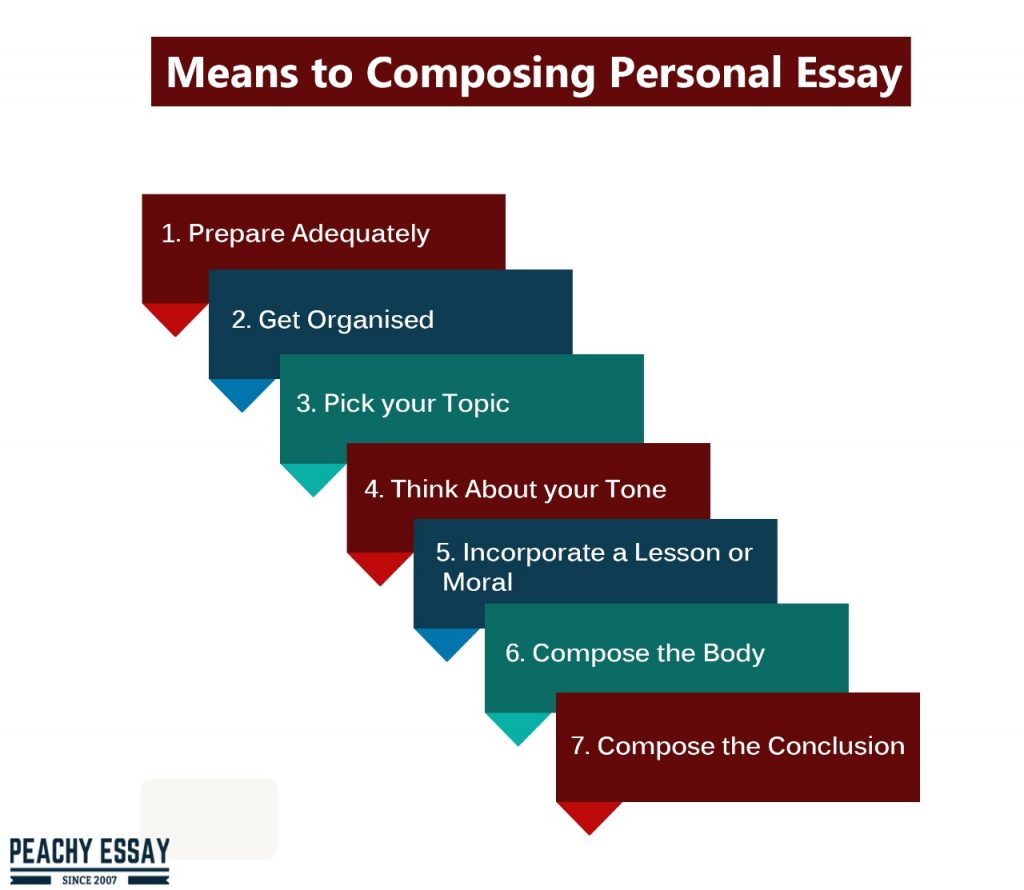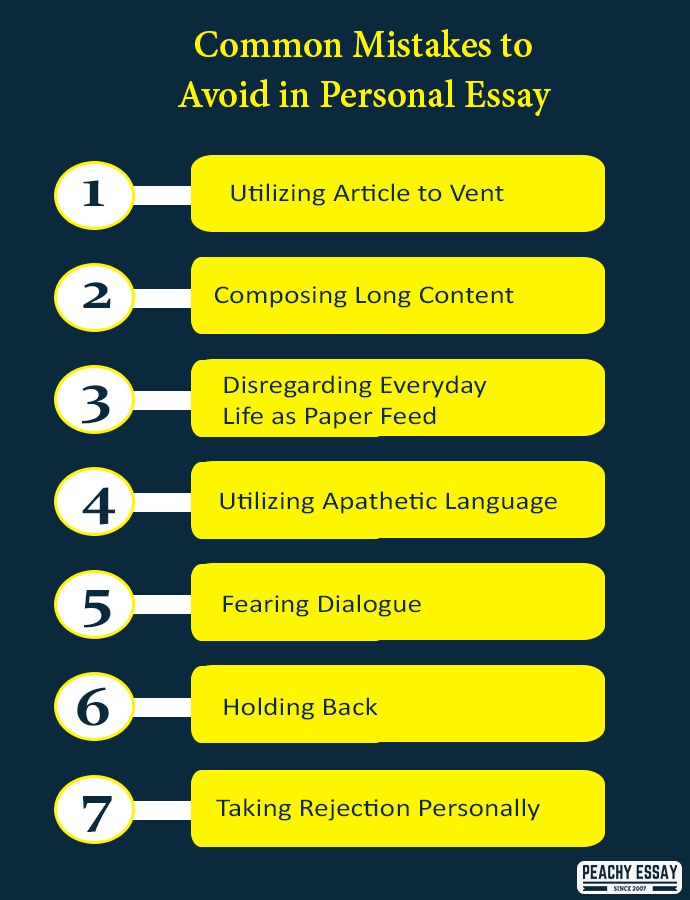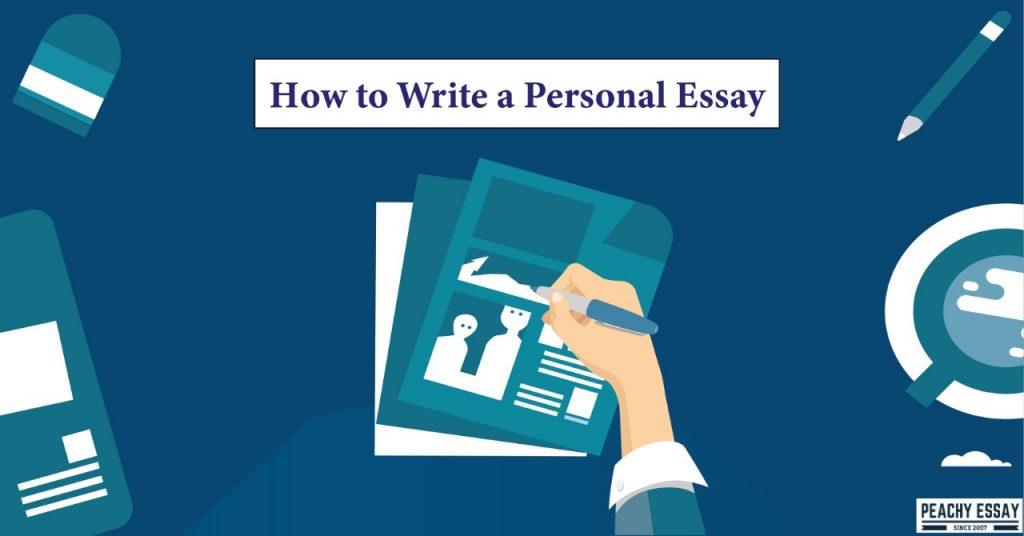Individuals compose personal essays for various reasons. For instance, secondary school understudies think of them for school admissions, and essayists use them to impart individual stories to other people. A personal essay can edify and rouse a group of people with data acquired from real-life encounters.
What is a Personal Essay?
An individual paper is a piece used to investigate a particular encounter and recounts the narrative of the experience or occasion from the person’s perspective. Individual expositions outline how a private matter or occasion had an enduring effect or how it changed your perspectives or viewpoint. A personal paper comprises of three primary parts: introduction, body, and conclusion. The essays vary from formal articles in their length, tone, and reason. Composing a personal essay gives you a chance to exhibit qualities, initiative, and the capacity to beat difficulties.
How to Structure a Personal Essay
A decent personal article ought to contain an introductory paragraph, sections, and an end. Usually, a personal article is composed of five sections. However, the article length doesn’t matter as long as it comprises of the following parts:
Introduction
This is the first part of your paper that presents your article’s content to the audience. A hook sentence is used in this section to attract the attention of the reader. Give an explanation of what you intend to do in the body sections.
Body
The body is a significant part of your paper that incorporates the main idea and personal evidence for your proposition. This is where you discuss your main ideas regarding your arguments.
Conclusion
This is where you summarize all the ideas discussed in the body sections. Avoid repeating what has already been presented in other areas and instead highlight content in your own words. More importantly, restate your thesis statement to demonstrate your position.
Personal Essay vs. Personal Statement
A personal essay is a long anecdote about how you were tested or changed by the experience you are portraying. Personal essays examine the cycle where the change occurred or how a test was met and is written from the essayist’s very own encounters.
A personal statement is typically explicit to a task part to clarify how you are ideal for the position. Individual statements are ordinarily found on a resume, CV, or application and are for the most part only a couple of sentences long.
How to Write a Personal Essay
Here are the means to composing a personal essay that draws in your reader and urges them to need to find out about you:

Prepare Adequately
When planning to compose your own article, first consider who your audience is and what you need them to know. Ask yourself inquiries to decide how your story identifies with your objectives for composing it. It’s useful to make a list of points you need to pass on so you can compose an article that makes your story relative and locks in.
Get Organized
Making an outline is an extraordinary step to sort out your contemplations and thoughts. Outlines can keep you on topic and try not to cover such a large number of thoughts so your central matters aren’t lost. Your article ought to follow a succession of occasions, so the story follows a direct way from beginning to end.
Pick your Topic
The story or experience you advise ought to relate to the message you need to pass on. Your exposition may recount an account of achievement or win, or it might discuss how your encounters formed your perspective or transformed you in a critical manner. Figure out what you need to achieve in your exposition and pick a story that advances your objectives.
Examples
Companion or relative who showed you an important lesson
A minor yet critical life or expert occasion
What exercises have formed you?
What is significant to you?
How you are appropriate for a profession
How you gained from past mix-ups
Individual perspective on a recent development or theme (variety, consideration, separation)
Think About your Tone
When forming an individual exposition, consider the inclination you need to portray or the atmosphere you need to make that depicts your character. Your article might be about a past encounter and may be composed as a glance back at an occasion and how it identifies with current conditions. In case you’re expounding on the recent development, the article might be composed from a current perspective, and the effect felt today.
Examples
Past: “I’m an American born to parents who showed me the value of cooperation and inclusion.”
Present: “The present instructive chances have empowered me to achieve more than I ever thought I would.”
Incorporate a Lesson or Moral
Your own article has a focal message or moral you are identifying with the reader to show your capacities, capabilities, or the strength of your character. Consider what you need the reader to recall your paper and clarify how, why and what your experience has instructed you.
Examples
Defeated a difficulty
Transcended the opposition
Related to a culture or local area
Turned into a pioneer
Gained from botches
Compose the introduction
The introduction features the primary concerns of your story, and the initial sentence should have an effect. Utilize an initial sentence that connects with the reader so they need to continue to peruse to discover more. Think about opening with an uplifting or clever statement or perception to begin your presentation.
Examples
“At the point when Steve Jobs, the organizer of Apple, said, “Innovation distinguishes between a leader and an adherent,” I never realized he was discussing me, until now.”
“In the event that there is one thing I know without a doubt, it’s that occasionally I’m fruitful, and in some cases, I learn.”
Compose the Body
The body of your exposition contains the most data and is by and large a few passages in length. The body is the fundamental content that develops every one of the focuses you made in the presentation and follows a sequential order. This is the place where you give supporting proof of the exercise or moral you are passing on in your story. Use models in your article to make the story striking and intelligible and make a passionate association by depicting scenes or occasions through sight, sound, and contact.
Example
“Through the smoke-filled fog of the fire’s result, it was difficult to perceive how the help of others would shape the remainder of my life. As the air cleared, so did my capacity to perceive what the really significant things are.”
Compose the Conclusion
The end is by and large a couple of passages long and rehashes your central matters in the body. Make an effort not to share new data and spotlight on handing-off your message. End your exposition with a sentence that summarizes the exercise in your story and connects the whole article.
Examples
“If not for that game-changing day when I figured out how to trust, I may have never discovered the boldness to compose this article.”
“In those days, I was suspicious about my capacity, however today I am certain the exercises I learned will see me through each resulting challenge.”
Common Mistakes to Avoid When Writing a Personal Essay

Utilizing article to vent
Journalists regularly utilize a paper as a chance to communicate a moralistic stand, bluster about a dubious issue, or vent about a relative. Don’t.
If you stand firm on an issue — and destroy it — odds are, you’ll lose your reader the second she (or he) gets your point.
Instead, challenge the reader to take their own stand without expressing it outright. Give your reader another approach to take a look at the issue by sharing a piece of yourself and demonstrating to him your experience, and you may, in a roundabout way, change a perspective.
Composing long content
When you’re updating and cleaning an exposition, ensure what you’ve composed is tight — there are no pointless words and no unnecessary accounts.
If you need to manage your piece so it will find a way into a specific segment, have a go at cutting additional words or even additional diagrams, and check whether your piece actually works. Furthermore, don’t be so satisfied with how you’ve turned an expression that you keep in your piece despite the fact that it doesn’t add to or uphold your takeaway.
Disregarding everyday life as paper feed
A writer’s responsibility is to extract universal significance from everyday realities and encounters of life.
I’ve expounded on my better half’s toy assortment, my child’s uncommon intrinsic heart condition, even my efforts to choose the ideal wine to combine with a dish.
Regardless of the issue here, it ought to include a type of individual change that permits you to see the world in an unexpected way. Will your story cause readers to feel something, or consider an issue in an unexpected way? Will it inspire them to act?
Utilizing apathetic language
Numerous scholars will, in general, utilize words and expressions consistently.
Attempt this self-altering test: Circle or feature the entirety of the intensifiers and descriptors in your piece. Is it true that they are the most ideally equipped words for the work? Would you be able to come up with better, richer, or more important words? Or do you find that you’ve utilized similar descriptive words and adverbs repeatedly? Every description should just show up in your piece once.
Then, take a gander at your action words. Is it accurate to say that they are action words? Or on the other hand, do you have a great deal of “to be” action words that don’t confer any importance?
Fearing dialogue
Utilizing direct exchange is frequently more successful than mentioning to the reader what somebody said.
Rather than saying, “The pediatrician advised us to dispose of our child’s thumb-sucking propensity,” compose “‘ If you don’t end his thumb-sucking before he’s three, his teeth will be set and the harm will be done,’ cautioned our pediatrician.”
Utilizing discourse is another method of demonstrating to the reader your story instead of advising them.
Stressed over the untrustworthiness of your memory? Statements don’t need to be definite; they simply must be actually how you recall them. In contrast to an announced piece, the article is about your own insight — your impression of occasions.
Holding back
In case you’re resolved to remain securely on the outside of your story, the article probably won’t be the correct structure for you. To compose articles, you need to place your entire self into them — your greatest expectations, biggest feelings of dread, and most profound second thoughts. You must be defenseless.
If you feel yourself controlling parts of your experience, stop. Perhaps this isn’t the opportune time for you to compose this piece. Possibly you need more separation from the circumstance so you can reveal further facts. You need to familiarize yourself with many personal stories to know how to go about it.
You must be prepared to release yourself and realize that the greater amount of yourself you bring to your composition, the better writer you’ll be.
Taking rejection personally
Individual articles are profoundly cozy, so it’s agonizing when editors reject them.
Yet, great authors know there are innumerable reasons why a manager may dismiss a piece. Perhaps they ran something comparative as of late (or have something comparative underway). Or on the other hand, perhaps that specific supervisor didn’t associate with your piece. That doesn’t mean it will not impact another person.
Personal Essay Format
The ideal approach to figure out how to begin an individual exposition is to have an away from of the principle highlights it ought to contain and its key prerequisites.
The principal thing you ought to ask the teacher when beginning your exposition is the formatting requests. The personal essay design differs from college to college, so everything relies upon your institution and class.
Generally, a personal paper has a significant straightforward structure and doesn’t need any standards on textual styles and sizes. It doesn’t have any list of references, so you simply need to remember that your paper should look spotless and clean, double-spaced, and easy to peruse.
Tips for Writing a Personal Essay
The following are the tips for writing a personal essay
- Focus on critical issues: It is very exhausting for your reader to find out what you practice daily; therefore, pick a theme, which assisted you with changing your character, or affected your surrounding;
- Begin with an initial line to captivate your audience: It very well may be a statement, an inquiry, or a concise prologue to the circumstance you will talk about. Try not to begin with direct subtleties in the event that you need to hook your audience to the end;
- Use your own words to compose the paper: If you are tempted to utilize tests on the web or somebody’s thoughts, bear in mind that an individual exposition entails giving your personal account and thoughts.
- Make use of the characters to enhance the quality of your paper: If you need your article to be pretty much as enlightening and intriguing as could be expected, you need to assemble careful attributes of each individual in your paper;
- Compose an outline: This will guide you to write your paper in the future. The outline also permits you to adhere direct and follow the design. It assists you not to miss significant details and will make your article itemized and clear;
- Utilize different artistic apparatuses: such as repetitions, illustrations, exemplifications, etc. They will advance your content and will make your story more grounded than any time in recent memory;
- Peruse your paper out loud: With the assistance of such a straightforward strategy, you will actually want to discover shaky areas of your article and overhaul them prior to submission;
- Request someone to review the paper: Utilize any quality checker to find out grammar errors structure and lexical mistakes. A large portion of the understudies disregards this significant step not realizing that in-text mistakes extraordinarily impact their performance.
Personal Essay Topics Examples
If you need ideas and don’t have the foggiest idea where to begin, here are some of the topics you can choose from.
A family member, who showed you a vital exercise;
A relationship you value the most;
What changed your character?
One of the vital occasions of your life;
What are the exercises which molded you?
The most important places for you;
Where do you see yourself in 10 years?




